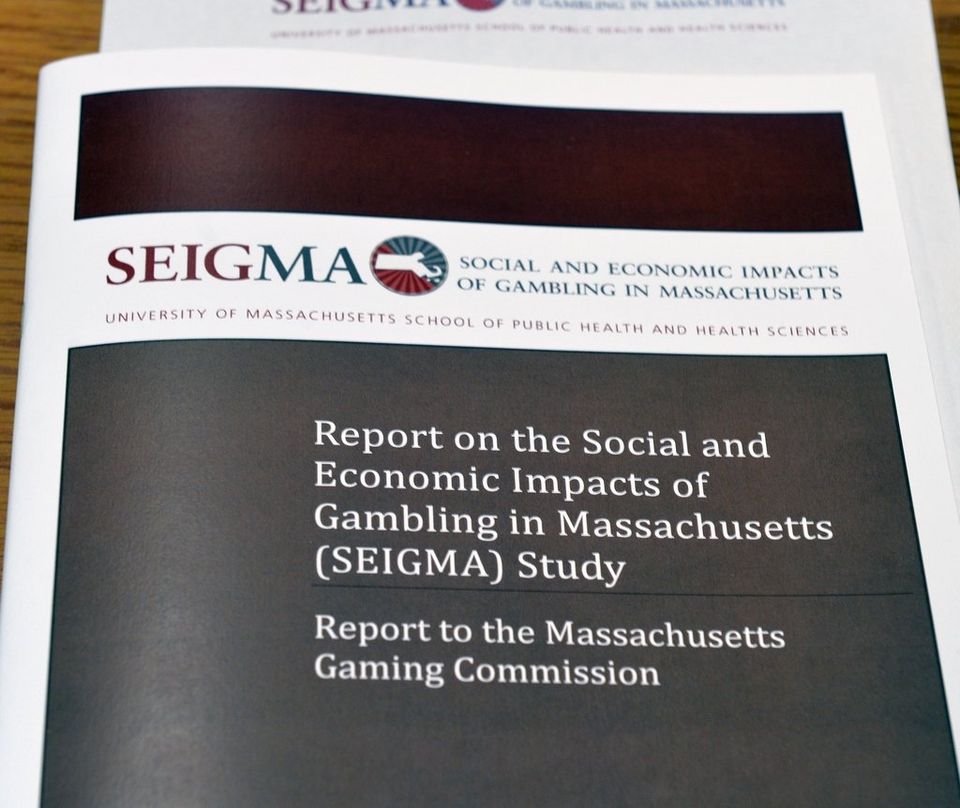UMass Amherst Releases Largest Gambling Study In US History
Posted on: June 12, 2015, 11:20h.
Last updated on: June 12, 2015, 11:21h.

Gambling is an important topic in Massachusetts at the moment, as the state prepares for the coming of at least two large resort casinos in the next few years.
In advance of that gaming expansion, the University of Massachusetts at Amherst (UMass Amherst) has released a study that gives a baseline for the state of gambling in the state now, one that can then be used to track changes in long term studies.
The study, which comes from the School of Public Health and Health Sciences at UMass Amherst, surveyed nearly 10,000 Massachusetts residents.
That’s enough to make it the largest gambling study ever completed in the United States.
Survey Establishes Baseline for Future Studies
The study was praised by Massachusetts Gaming Commission Chairman Steve Crosby, who said that it should provide an objective way to understand how the state is being impacted by gambling going forward.
“The most important point is that we are establishing baseline conditions for every socio and economic variable that might be affected by the introduction of casinos,” Crosby said. “Our researchers will then track changes in those variables over the entire life of the casinos in order to know to a certainty the consequences and to inform data-driven mitigation strategies for any potential negative consequences.”
The survey was conducted between September 2013 and May 2014, with state residents being selected at random to complete the questionnaire.
The result was a wealth of information detailing exactly how people in Massachusetts gamble and view various forms of gaming.
For instance, it turns out that about 72 percent of respondents reported gambling at least one time over the past year.
Most Massachusetts residents (about 60 percent) said they played the lottery, while 22 percent reported that they had gone to a casino during the past year.
Residents Like Casinos, But Not Locally
One hot topic in the region has been how Massachusetts’ new casinos will impact existing casino operations in Connecticut. The study suggests that officials in Connecticut are right to be worried: 65 percent of those Massachusetts residents who went to casinos visited resorts in Connecticut, a percentage that should go way down when the Wynn Everett and MGM Springfield are operational.
The study also looked into how residents feel about the state’s gambling expansion, which includes a slots parlor and up to three full-scale casinos. The answer was one that has been heard in many communities throughout the state: not in my backyard.
A strong 59 percent majority of adults in Massachusetts said that they think gambling expansion will either have a neutral impact or be beneficial to the state.
However, 46 percent believe that gambling expansion would be harmful in their own community, while only 28 percent believe casino expansion would be beneficial locally.
The study also found that illegal gambling was fairly common in Massachusetts. About 13 percent of residents had bet on sports in the past year, while two percent reporting gambling on unregulated Internet gaming sites.
More in-depth analysis of the data collected is expected to be released in the months to come. However, principal investigator Rachel Volberg says that the real value in this survey was collecting information before opinions could be shaped by the introduction of casinos.
“Not many people realize how unusual it is for a problem gambling survey to be completed before some new type of gambling becomes available,” Volberg said. “The Commonwealth is fortunate that both the Expanded Gaming Act and the Massachusetts Gaming Commission so clearly and forcefully supported such an effort and I am excited to share our findings before any casinos begin operations in our state.”
No comments yet